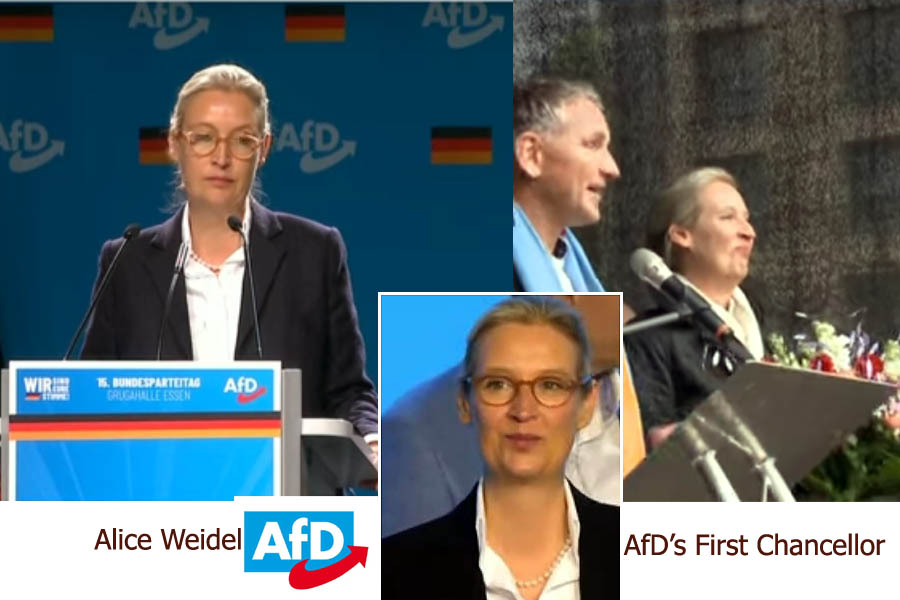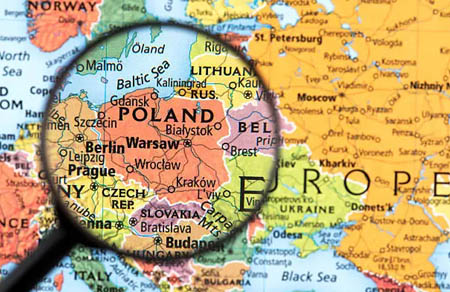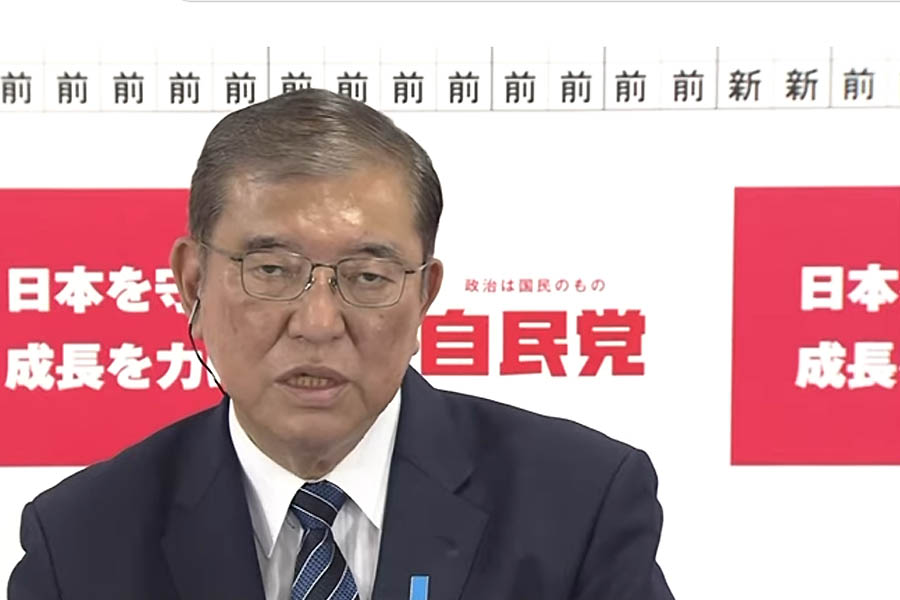
Alice Weidel’s Historic Nomination: AfD’s First Chancellor Candidate for 2025 Elections
8-Dec-2024In a historic move, Alice Weidel, co-leader of the Alternative for Germany (AfD), has been nominated as the party’s first-ever candidate for Chancellor of Germany. This marks a significant turning point for the 11-year-old right-wing party, signaling its intention to challenge the political establishment in the 2025 elections. Weidel's candidacy, however, comes amid political isolation and contentious stances on key issues.
A First for the AfD: A Historic Moment in Germany’s Political Landscape
Since its founding in 2013, the AfD has steadily risen in prominence, now emerging as Germany’s second-strongest political force according to recent polls. Historically, the AfD refrained from nominating a chancellor candidate, focusing instead on securing parliamentary seats. Weidel’s nomination is a bold strategic pivot that positions the AfD as a serious contender for Germany’s highest office, marking a momentous shift for both the party and German politics.
This nomination is not only significant for the AfD but for the broader political landscape of Germany. It challenges the traditional political order, as the AfD’s rise has been largely driven by dissatisfaction with mainstream parties on issues like immigration, economic policy, and national security. Weidel’s candidacy underscores the party's ambition to redefine German politics and challenge the status quo ahead of the 2025 elections.
Weidel’s rise consolidates her leadership within the AfD, which has faced internal power struggles over the years. While her co-chair, Tino Chrupalla, has taken a back seat, Weidel has become the undisputed face of the party. This shift in leadership reflects her growing influence and the AfD’s commitment to asserting itself as a viable alternative to Germany’s traditional political parties.
Weidel’s Policy Agenda: Immigration, Economy, and Foreign Policy
Weidel’s policy agenda focuses on key areas that have been at the heart of the AfD’s platform for years. At a December 7, 2024 convention, she outlined her vision for a future Germany under AfD leadership. The core tenets of her platform include:
- Strict Immigration Controls: Weidel is committed to reducing immigration, emphasizing the need for a robust, nationalistic approach to border security.
- Economic Reforms: Weidel has vowed to reverse Chancellor Olaf Scholz’s energy transition policies, which have led to higher electricity costs, industrial closures, and rising unemployment in Germany. The AfD plans to prioritize job creation and stabilize energy prices by reconsidering the shift away from Russian gas and re-evaluating green energy initiatives.
- Opposition to Military Aid to Ukraine: As part of her anti-war stance, Weidel opposes continued arms shipments to Ukraine, positioning herself and the AfD as a “peace party” advocating for non-interventionist policies in the ongoing Russia-Ukraine conflict.
Public and Political Reaction: A Divisive Candidate
Weidel’s candidacy has been met with mixed reactions across the political spectrum. While her supporters praise her stance on immigration and foreign policy, critics view her as a polarizing figure. Her past comments about immigrants and refugees have sparked backlash, with many accusing her of fueling xenophobic sentiments. However, her supporters argue that she is simply addressing the concerns of ordinary Germans who feel that their voices have been ignored by mainstream parties.
Political figures, both domestic and international, have weighed in on Weidel’s nomination. German Chancellor Olaf Scholz criticized her opposition to Ukraine’s military aid, calling it reckless and dangerous. Scholz’s government has been a strong advocate for supporting Ukraine in its conflict with Russia, with Germany providing billions in aid. Scholz's remarks underscore the ideological divide between the AfD and Germany's mainstream parties.
Internationally, Weidel’s anti-Ukraine stance has drawn concern from European leaders. Some fear that an AfD-led government would undermine Germany’s commitment to European unity and NATO. However, others see her as a voice for Germany’s disillusioned electorate, particularly in Eastern Europe, where skepticism about Ukraine’s EU integration is growing.
Implications for Germany’s 2025 Election: Will AfD Break Through?
The AfD’s decision to nominate a chancellor candidate signals a new phase in German politics, but it also presents significant challenges. Despite rising support, the AfD remains politically isolated. All mainstream parties, including the CDU and the SPD, have ruled out coalition agreements with the AfD, citing concerns about its far-right associations and controversial rhetoric.
In addition, Germany’s political landscape remains fractured. The center-right CDU remains the most popular party, and while the AfD is gaining ground, it is unlikely to win an outright majority in the 2025 elections. Without potential coalition partners, Weidel's bid for the chancellorship faces an uphill battle. However, her nomination has already reshaped the political conversation, pushing issues like immigration, energy policy, and Germany's foreign relations to the forefront of the election debates.
The potential for a snap election in February 2025 only adds to the uncertainty. Should the AfD secure the largest share of the vote, the lack of coalition partners could prevent them from forming a government, but the party’s growing influence will likely lead to a shift in German political dynamics moving forward.
Weidel’s Path Ahead: A Calculated and Divisive Campaign
Weidel’s public persona is a combination of pragmatic leadership and divisive rhetoric. While she seeks to present the AfD as a legitimate, moderate party, her past remarks on immigration and Islam continue to attract criticism. The AfD's campaign strategy will likely attempt to reach out to middle-class and disillusioned voters, while maintaining its hardline positions on immigration and nationalism to energize its core base.
As Germany heads into what promises to be a volatile election season, the AfD’s nomination of Alice Weidel as chancellor candidate represents both a bold challenge to the political establishment and a risk that could either solidify the party’s future or further isolate it. The 2025 election could very well determine whether the AfD’s rise is a fleeting political moment or the beginning of a new era in German politics.
#AliceWeidel #AfD #GermanElections2025 #GermanyPolitics #UkraineCrisis #ImmigrationPolicy #ChancellorCandidate #PoliticalChange #OlafScholz #GermanEconomy
Thank you for reading: Globalpostheadline.com





